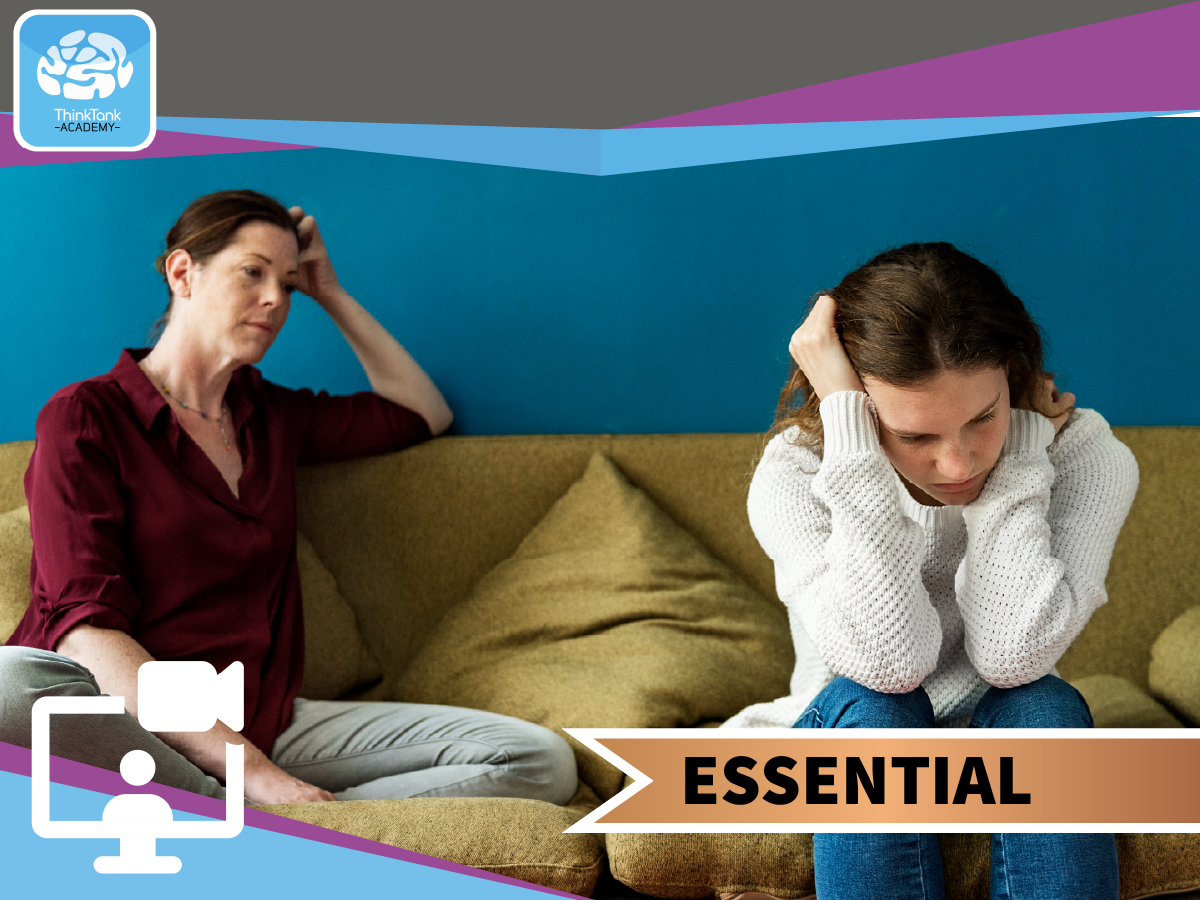
Attachment - Children's Care - Essential Level
Course Overview Attachment - Children's Care - Essential Level training course aims to provide learners with an understanding and awareness of Attachment and encourages each learner to reflect on their own personal attachments and their practice in relation to working with individuals with Attachment Disorders. The course explores the background of Attachment and how early Theorists developed the concepts that underpin Attachment Theory that we still use today. The course features a range of group work, activities and discussions to enhance learner skill development. This course can be delivered in face-to-face classroom environment or a virtual classroom via a webinar: on PC, laptop etc. For mobile phones it is recommended to use the app for IOS or Android devices. Aims & Objectives Define Attachment Disorder Be aware of the underpinning theory of Attachment Identify barriers for Children with insecure attachments Recognise and manage behaviours linked to negative attachments Suggest Strategies to support children with poor Attachments Course Audience Health Care Workers, Social Care Workers, Children’s Centre Practitioners, Education Support Staff and Youth Workers














Attachment - Children's Care - Essential Level
Course Overview Attachment - Children's Care - Essential Level training course aims to provide learners with an understanding and awareness of Attachment and encourages each learner to reflect on their own personal attachments and their practice in relation to working with individuals with Attachment Disorders. The course explores the background of Attachment and how early Theorists developed the concepts that underpin Attachment Theory that we still use today. The course features a range of group work, activities and discussions to enhance learner skill development. This course can be delivered in face-to-face classroom environment or a virtual classroom via a webinar: on PC, laptop etc. For mobile phones it is recommended to use the app for IOS or Android devices. Aims & Objectives Define Attachment Disorder Be aware of the underpinning theory of Attachment Identify barriers for Children with insecure attachments Recognise and manage behaviours linked to negative attachments Suggest Strategies to support children with poor Attachments Course Audience Health Care Workers, Social Care Workers, Children’s Centre Practitioners, Education Support Staff and Youth Workers














Attachment - Children's Care - Essential Level
Course Overview Attachment - Children's Care - Essential Level training course aims to provide learners with an understanding and awareness of Attachment and encourages each learner to reflect on their own personal attachments and their practice in relation to working with individuals with Attachment Disorders. The course explores the background of Attachment and how early Theorists developed the concepts that underpin Attachment Theory that we still use today. The course features a range of group work, activities and discussions to enhance learner skill development. This course can be delivered in face-to-face classroom environment or a virtual classroom via a webinar: on PC, laptop etc. For mobile phones it is recommended to use the app for IOS or Android devices. Aims & Objectives Define Attachment Disorder Be aware of the underpinning theory of Attachment Identify barriers for Children with insecure attachments Recognise and manage behaviours linked to negative attachments Suggest Strategies to support children with poor Attachments Course Audience Health Care Workers, Social Care Workers, Children’s Centre Practitioners, Education Support Staff and Youth Workers














Attachment - Children's Care - Essential Level
Course Overview Attachment - Children's Care - Essential Level training course aims to provide learners with an understanding and awareness of Attachment and encourages each learner to reflect on their own personal attachments and their practice in relation to working with individuals with Attachment Disorders. The course explores the background of Attachment and how early Theorists developed the concepts that underpin Attachment Theory that we still use today. The course features a range of group work, activities and discussions to enhance learner skill development. This course can be delivered in face-to-face classroom environment or a virtual classroom via a webinar: on PC, laptop etc. For mobile phones it is recommended to use the app for IOS or Android devices. Aims & Objectives Define Attachment Disorder Be aware of the underpinning theory of Attachment Identify barriers for Children with insecure attachments Recognise and manage behaviours linked to negative attachments Suggest Strategies to support children with poor Attachments Course Audience Health Care Workers, Social Care Workers, Children’s Centre Practitioners, Education Support Staff and Youth Workers














Attachment - Children's Care - Essential Level
Course Overview Attachment - Children's Care - Essential Level training course aims to provide learners with an understanding and awareness of Attachment and encourages each learner to reflect on their own personal attachments and their practice in relation to working with individuals with Attachment Disorders. The course explores the background of Attachment and how early Theorists developed the concepts that underpin Attachment Theory that we still use today. The course features a range of group work, activities and discussions to enhance learner skill development. This course can be delivered in face-to-face classroom environment or a virtual classroom via a webinar: on PC, laptop etc. For mobile phones it is recommended to use the app for IOS or Android devices. Aims & Objectives Define Attachment Disorder Be aware of the underpinning theory of Attachment Identify barriers for Children with insecure attachments Recognise and manage behaviours linked to negative attachments Suggest Strategies to support children with poor Attachments Course Audience Health Care Workers, Social Care Workers, Children’s Centre Practitioners, Education Support Staff and Youth Workers














Attachment - Children's Care - Essential Level
Course Overview Attachment - Children's Care - Essential Level training course aims to provide learners with an understanding and awareness of Attachment and encourages each learner to reflect on their own personal attachments and their practice in relation to working with individuals with Attachment Disorders. The course explores the background of Attachment and how early Theorists developed the concepts that underpin Attachment Theory that we still use today. The course features a range of group work, activities and discussions to enhance learner skill development. This course can be delivered in face-to-face classroom environment or a virtual classroom via a webinar: on PC, laptop etc. For mobile phones it is recommended to use the app for IOS or Android devices. Aims & Objectives Define Attachment Disorder Be aware of the underpinning theory of Attachment Identify barriers for Children with insecure attachments Recognise and manage behaviours linked to negative attachments Suggest Strategies to support children with poor Attachments Course Audience Health Care Workers, Social Care Workers, Children’s Centre Practitioners, Education Support Staff and Youth Workers














Attachment - Children's Care - Essential Level
Course Overview Attachment - Children's Care - Essential Level training course aims to provide learners with an understanding and awareness of Attachment and encourages each learner to reflect on their own personal attachments and their practice in relation to working with individuals with Attachment Disorders. The course explores the background of Attachment and how early Theorists developed the concepts that underpin Attachment Theory that we still use today. The course features a range of group work, activities and discussions to enhance learner skill development. This course can be delivered in face-to-face classroom environment or a virtual classroom via a webinar: on PC, laptop etc. For mobile phones it is recommended to use the app for IOS or Android devices. Aims & Objectives Define Attachment Disorder Be aware of the underpinning theory of Attachment Identify barriers for Children with insecure attachments Recognise and manage behaviours linked to negative attachments Suggest Strategies to support children with poor Attachments Course Audience Health Care Workers, Social Care Workers, Children’s Centre Practitioners, Education Support Staff and Youth Workers














Attachment - Children's Care - Essential Level
Course Overview Attachment - Children's Care - Essential Level training course aims to provide learners with an understanding and awareness of Attachment and encourages each learner to reflect on their own personal attachments and their practice in relation to working with individuals with Attachment Disorders. The course explores the background of Attachment and how early Theorists developed the concepts that underpin Attachment Theory that we still use today. The course features a range of group work, activities and discussions to enhance learner skill development. This course can be delivered in face-to-face classroom environment or a virtual classroom via a webinar: on PC, laptop etc. For mobile phones it is recommended to use the app for IOS or Android devices. Aims & Objectives Define Attachment Disorder Be aware of the underpinning theory of Attachment Identify barriers for Children with insecure attachments Recognise and manage behaviours linked to negative attachments Suggest Strategies to support children with poor Attachments Course Audience Health Care Workers, Social Care Workers, Children’s Centre Practitioners, Education Support Staff and Youth Workers














Attachment - Children's Care - Essential Level
Course Overview Attachment - Children's Care - Essential Level training course aims to provide learners with an understanding and awareness of Attachment and encourages each learner to reflect on their own personal attachments and their practice in relation to working with individuals with Attachment Disorders. The course explores the background of Attachment and how early Theorists developed the concepts that underpin Attachment Theory that we still use today. The course features a range of group work, activities and discussions to enhance learner skill development. This course can be delivered in face-to-face classroom environment or a virtual classroom via a webinar: on PC, laptop etc. For mobile phones it is recommended to use the app for IOS or Android devices. Aims & Objectives Define Attachment Disorder Be aware of the underpinning theory of Attachment Identify barriers for Children with insecure attachments Recognise and manage behaviours linked to negative attachments Suggest Strategies to support children with poor Attachments Course Audience Health Care Workers, Social Care Workers, Children’s Centre Practitioners, Education Support Staff and Youth Workers














Attachment - Children's Care - Essential Level
Course Overview Attachment - Children's Care - Essential Level training course aims to provide learners with an understanding and awareness of Attachment and encourages each learner to reflect on their own personal attachments and their practice in relation to working with individuals with Attachment Disorders. The course explores the background of Attachment and how early Theorists developed the concepts that underpin Attachment Theory that we still use today. The course features a range of group work, activities and discussions to enhance learner skill development. This course can be delivered in face-to-face classroom environment or a virtual classroom via a webinar: on PC, laptop etc. For mobile phones it is recommended to use the app for IOS or Android devices. Aims & Objectives Define Attachment Disorder Be aware of the underpinning theory of Attachment Identify barriers for Children with insecure attachments Recognise and manage behaviours linked to negative attachments Suggest Strategies to support children with poor Attachments Course Audience Health Care Workers, Social Care Workers, Children’s Centre Practitioners, Education Support Staff and Youth Workers














Attachment - Children's Care - Essential Level
Course Overview Attachment - Children's Care - Essential Level training course aims to provide learners with an understanding and awareness of Attachment and encourages each learner to reflect on their own personal attachments and their practice in relation to working with individuals with Attachment Disorders. The course explores the background of Attachment and how early Theorists developed the concepts that underpin Attachment Theory that we still use today. The course features a range of group work, activities and discussions to enhance learner skill development. This course can be delivered in face-to-face classroom environment or a virtual classroom via a webinar: on PC, laptop etc. For mobile phones it is recommended to use the app for IOS or Android devices. Aims & Objectives Define Attachment Disorder Be aware of the underpinning theory of Attachment Identify barriers for Children with insecure attachments Recognise and manage behaviours linked to negative attachments Suggest Strategies to support children with poor Attachments Course Audience Health Care Workers, Social Care Workers, Children’s Centre Practitioners, Education Support Staff and Youth Workers














Attachment - Children's Care - Essential Level
Course Overview Attachment - Children's Care - Essential Level training course aims to provide learners with an understanding and awareness of Attachment and encourages each learner to reflect on their own personal attachments and their practice in relation to working with individuals with Attachment Disorders. The course explores the background of Attachment and how early Theorists developed the concepts that underpin Attachment Theory that we still use today. The course features a range of group work, activities and discussions to enhance learner skill development. This course can be delivered in face-to-face classroom environment or a virtual classroom via a webinar: on PC, laptop etc. For mobile phones it is recommended to use the app for IOS or Android devices. Aims & Objectives Define Attachment Disorder Be aware of the underpinning theory of Attachment Identify barriers for Children with insecure attachments Recognise and manage behaviours linked to negative attachments Suggest Strategies to support children with poor Attachments Course Audience Health Care Workers, Social Care Workers, Children’s Centre Practitioners, Education Support Staff and Youth Workers
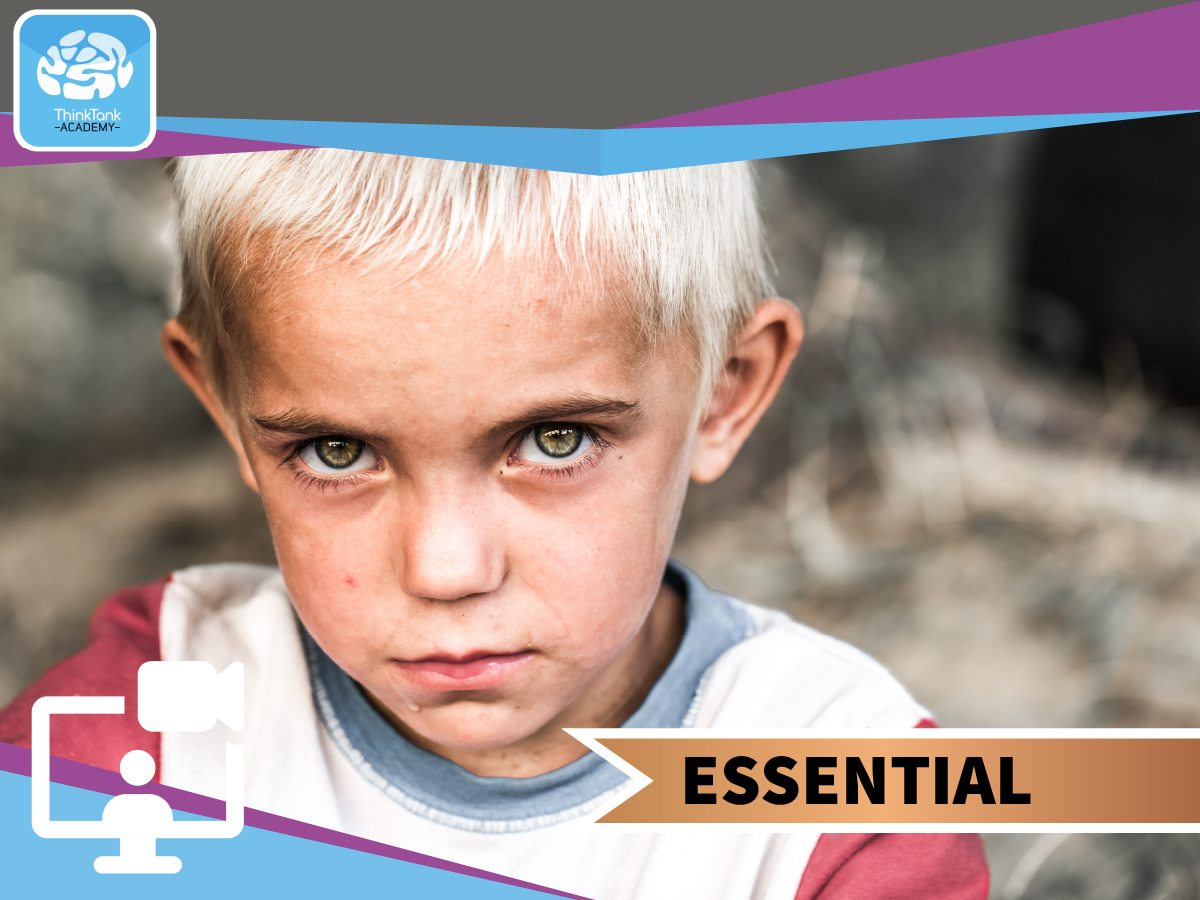


Exploitation Awareness - Children's Care - Essential Level
Course Overview Exploitation Awareness - Children's Care - Essential Level training course is designed to highlight the fact that Child Exploitation refers to a child or young person being used for someone else’s gain and that Child exploitation is a form of abuse which can involve sexual, abusive or manipulative behaviour. This course supports practitioners to recognise the indicators and respond appropriately to individuals that are being Exploited. It includes the ‘grooming process’ and how perpetrators manipulate young people into inappropriate relationships and risky behaviours It incorporates the relevant legislation around Exploitation and provides advice on how to support children and young people who have suffered this type of abuse and some excellent resources around Exploitation and who we can signpost to. This course can be delivered in face-to-face classroom environment or a virtual classroom via a webinar: on PC, laptop etc. For mobile phones it is recommended to use the app for IOS or Android devices. Aims and Objectives Give an understanding of the scale of the issue CSE and CCE Include a background of exploitation Recognise the stages of grooming Identify the signs of CSE and CCE Recognise the lessons learned from the Rotherham Raise awareness of County lines Push/ Pull Factors Protocols Resources & Links Course Audience All practitioners that engage with Children and Young People in the workplace (sports, education, health and social care, criminal justice, hospitality, retail, Guides/ Scouts, Volunteers etc).



Child Sexual Exploitation - Children's Care - Essential Level
Course Overview This is a training session for people working with Children and Young People who are victims of Sexual Exploitation. This course aims to raise awareness of the differences between Child Sexual Exploitation and other forms of abuse. It will provide learners with an understanding and awareness of the impact and prevalence of sexual exploitation and how victims are identified and targeted. It will outline the stages of grooming and will discuss the lessons learned from the Serious Case Reviews. The course features a range of group work, activities and discussions to enhance learner skill development. This course offers a blended learning approach including a short scenario, a workbook and infographics to enhance the learning experience. This course can be delivered in face-to-face classroom environment or a virtual classroom via a webinar: on PC, laptop etc. For mobile phones it is recommended to use the app for IOS or Android devices. Aims & Objectives Help the learner to differentiate between Sexual Exploitation and other forms of abuse To form an understanding of the scale and prevalence of Sexual Exploitation within society To identify the stages of Grooming To demonstrate an understanding of best practice Course Audience Health Care Workers, Social Care Workers, Children’s Centre Practitioners, Youth Workers, Education Workers and Police/ Probation staff




Recording and Reporting - Children's Care - Essential Level
Course Overview This course is designed to improve recording and reporting practices in children's health and social care sector. All major high profile serious case reviews have found that recording mistakes were present. The course identifies correct practice and processes for the handling, storing and processing of data including the GDPR legislation and what must be recorded and how by distinguishing the differences between fact, opinion and judgement for professional documentation. It also provides guidance for effective and sufficient reporting of incidents within a care setting. The positive aspects of recording such as Life story Work which is imperative for identity purposes of the Children and Young People that we work with are included. This course can be delivered in face-to-face classroom environment or a virtual classroom via a webinar: on PC, laptop etc. For mobile phones it is recommended to use the app for IOS or Android devices. Aims & Objectives Describe why reports have to be written Explain the meaning of ‘ethical writing’ Identify what to include in reports Recognise the difference between fact, opinion, judgement and hearsay Display documentation Course Audience This course is designed for Practitioners working with Families or Children and Young People.
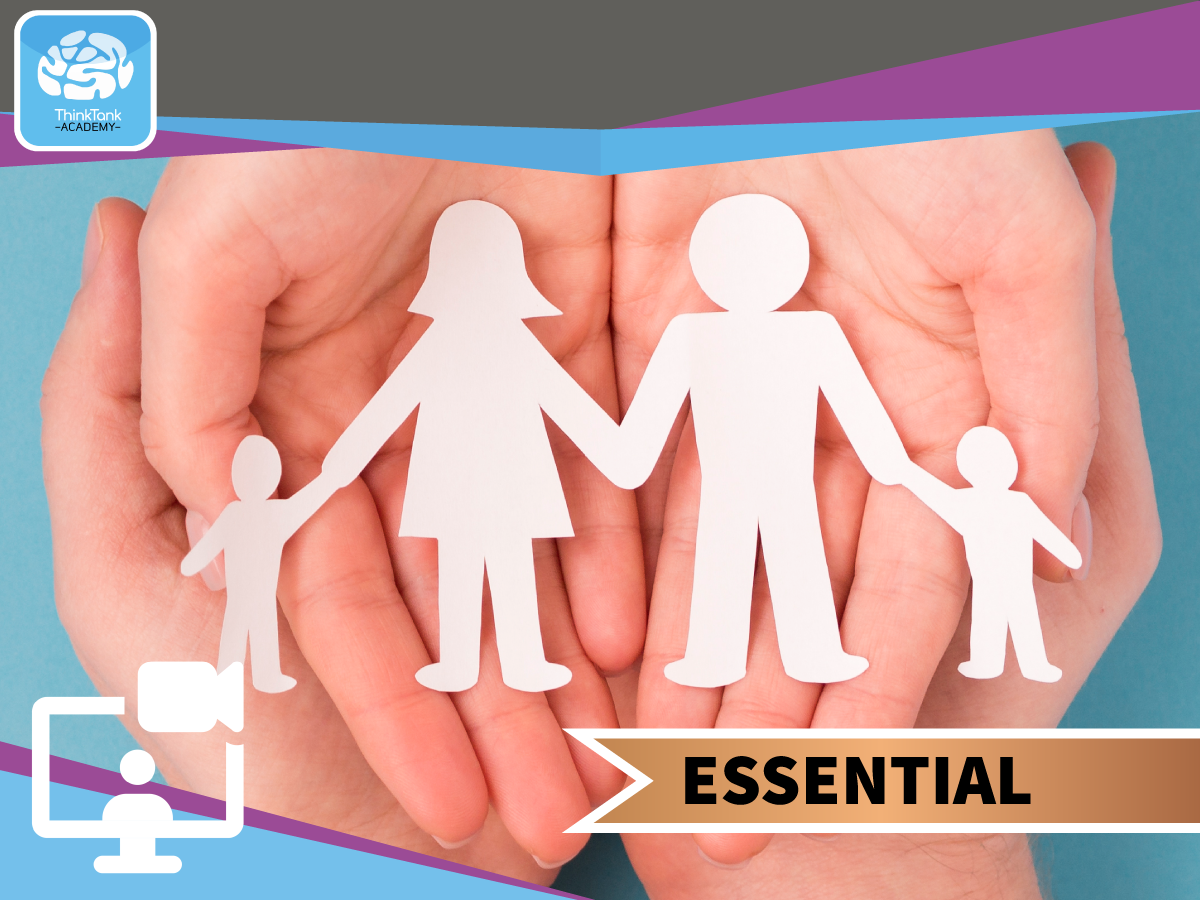


Safeguarding Children - Children's Care - Essential Level
Course Overview This course provides progression from the Safeguarding Children Foundation Level Online course. This is a training session for people working with children and young people. Learners will be encouraged to think about their responsibilities in safeguarding, the process to follow when allegations and disclosures are made and how to respond to poor practice. The course features a range of group work, activities and discussions to enhance learner skill development. This training session can be accessed via a link and is accessible from a range of devices including IOS and Android platforms. This course offers a blended learning approach including a short scenario, a workbook, infographics and a classroom style training session. Aims & Objectives Understanding what Safeguarding means in relation to Children Identify why children are vulnerable and what the signs and indicators are Understand how to respond and record and what needs to be reported Identify what poor practice and what unsafe practice looks like Understand how to whistle blow and what this means Introduce the Complaints Procedure and policies in relation to this Course Audience Health Care Workers, Social Care Workers, Support Centre Practitioners, Youth Workers, Children’s Support Worker, Nursing Staff, Residential Care Staff, Teachers, Psychologists and Assistants, Nursery Workers
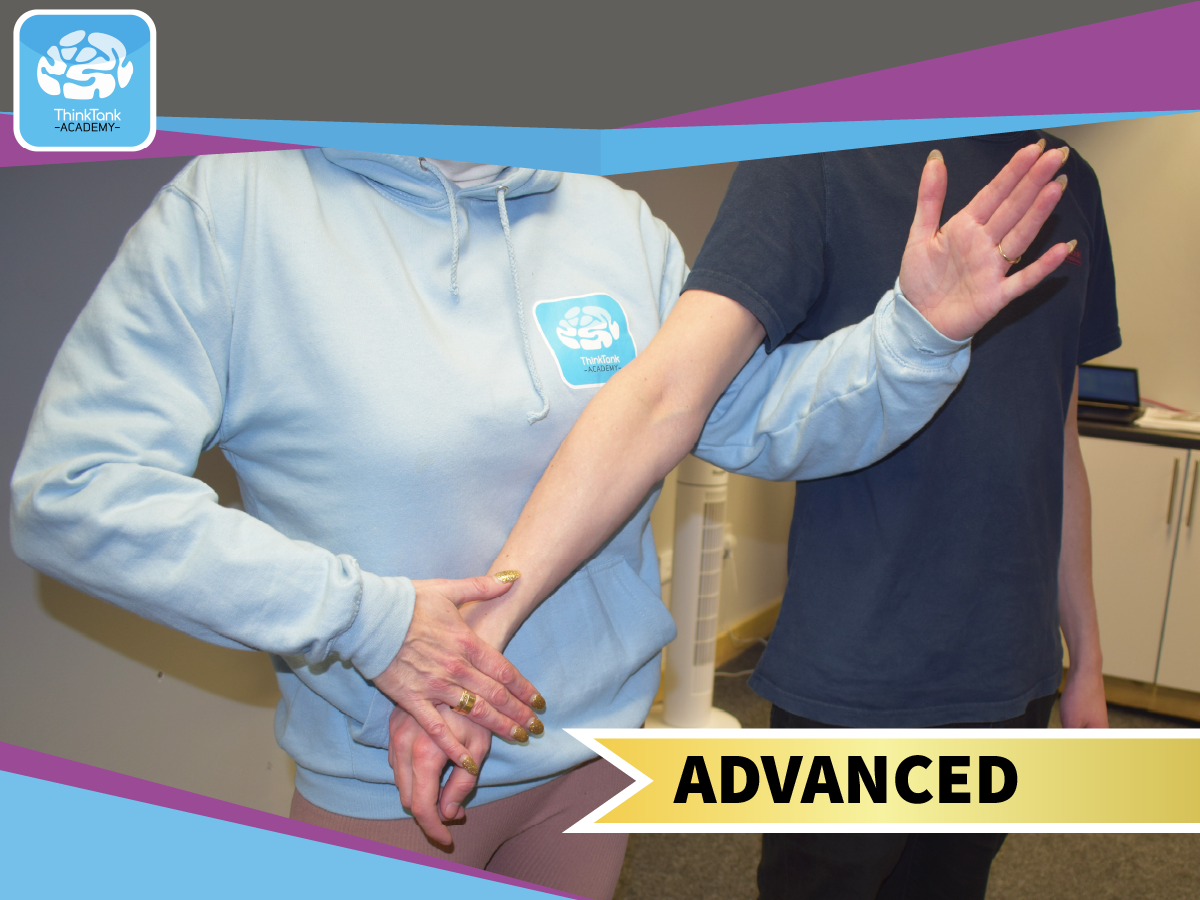


T.A.N.K. Positive Behaviour Support and Physical Intervention - Children's Care - Advanced Level
T.A.N.K. Positive Behaviour Support and Physical Intervention - Children's Care - Advanced Level THINK – ASSESS – NURTURE – KEEP CONTROL Course Overview T.A.N.K. is two-day, classroom-based training programme, designed specifically to help people working with children and vulnerable adults, who can often display challenging behaviour whilst in crisis. T.A.N.K. focuses on developing an understanding of how this behaviour can present itself in the care environment. It provides both theoretical and practical skills to help delegates respond positively employing strategies and interventions that can safely de-escalate situation, minimising the risk to themselves and young person. Delegates are supported to analyse different behaviours, dynamically risk manage situations, considering strategies and interventions to safely manage behaviour. Delegates will analyse and reflect on relationship between trauma attachment, mood, and behaviour leading to long-term improvement. The course features group work, practical activities, and discussion to enhance skills development. Our highly experienced Trainers are passionately dedicated to reducing the use of physical restraints, and although the use of restraints and physical intervention are included, this is as a last resort, only using these when all other strategies have proved unsuccessful. Aims and Objectives Interventions which impact positively on the delegate and the people they support Demonstrate how to positively reinforce good behaviour Reflect on positive and negative consequences of behaviour Provide a toolkit that delegates can use to provide safe and meaningful intervention Introduce the concept of social reinforcement and how this can work in care and support environments Course Audience Residential Care Workers, Health Care Workers, Social Care Workers, Children’s Centre Practitioners, Youth Workers, Teachers and Early Years Practitioners



T.A.N.K. Positive Behaviour Support and Physical Intervention - Children's Care - Advanced Level
T.A.N.K. Positive Behaviour Support and Physical Intervention - Children's Care - Advanced Level THINK – ASSESS – NURTURE – KEEP CONTROL Course Overview T.A.N.K. is two-day, classroom-based training programme, designed specifically to help people working with children and vulnerable adults, who can often display challenging behaviour whilst in crisis. T.A.N.K. focuses on developing an understanding of how this behaviour can present itself in the care environment. It provides both theoretical and practical skills to help delegates respond positively employing strategies and interventions that can safely de-escalate situation, minimising the risk to themselves and young person. Delegates are supported to analyse different behaviours, dynamically risk manage situations, considering strategies and interventions to safely manage behaviour. Delegates will analyse and reflect on relationship between trauma attachment, mood, and behaviour leading to long-term improvement. The course features group work, practical activities, and discussion to enhance skills development. Our highly experienced Trainers are passionately dedicated to reducing the use of physical restraints, and although the use of restraints and physical intervention are included, this is as a last resort, only using these when all other strategies have proved unsuccessful. Aims and Objectives Interventions which impact positively on the delegate and the people they support Demonstrate how to positively reinforce good behaviour Reflect on positive and negative consequences of behaviour Provide a toolkit that delegates can use to provide safe and meaningful intervention Introduce the concept of social reinforcement and how this can work in care and support environments Course Audience Residential Care Workers, Health Care Workers, Social Care Workers, Children’s Centre Practitioners, Youth Workers, Teachers and Early Years Practitioners




Recording and Reporting - Children's Care - Essential Level
Course Overview This course is designed to improve recording and reporting practices in children's health and social care sector. All major high profile serious case reviews have found that recording mistakes were present. The course identifies correct practice and processes for the handling, storing and processing of data including the GDPR legislation and what must be recorded and how by distinguishing the differences between fact, opinion and judgement for professional documentation. It also provides guidance for effective and sufficient reporting of incidents within a care setting. The positive aspects of recording such as Life story Work which is imperative for identity purposes of the Children and Young People that we work with are included. This course can be delivered in face-to-face classroom environment or a virtual classroom via a webinar: on PC, laptop etc. For mobile phones it is recommended to use the app for IOS or Android devices. Aims & Objectives Describe why reports have to be written Explain the meaning of ‘ethical writing’ Identify what to include in reports Recognise the difference between fact, opinion, judgement and hearsay Display documentation Course Audience This course is designed for Practitioners working with Families or Children and Young People.














Attachment - Children's Care - Essential Level
Course Overview Attachment - Children's Care - Essential Level training course aims to provide learners with an understanding and awareness of Attachment and encourages each learner to reflect on their own personal attachments and their practice in relation to working with individuals with Attachment Disorders. The course explores the background of Attachment and how early Theorists developed the concepts that underpin Attachment Theory that we still use today. The course features a range of group work, activities and discussions to enhance learner skill development. This course can be delivered in face-to-face classroom environment or a virtual classroom via a webinar: on PC, laptop etc. For mobile phones it is recommended to use the app for IOS or Android devices. Aims & Objectives Define Attachment Disorder Be aware of the underpinning theory of Attachment Identify barriers for Children with insecure attachments Recognise and manage behaviours linked to negative attachments Suggest Strategies to support children with poor Attachments Course Audience Health Care Workers, Social Care Workers, Children’s Centre Practitioners, Education Support Staff and Youth Workers



Safeguarding Children - Children's Care - Essential Level
Course Overview This course provides progression from the Safeguarding Children Foundation Level Online course. This is a training session for people working with children and young people. Learners will be encouraged to think about their responsibilities in safeguarding, the process to follow when allegations and disclosures are made and how to respond to poor practice. The course features a range of group work, activities and discussions to enhance learner skill development. This training session can be accessed via a link and is accessible from a range of devices including IOS and Android platforms. This course offers a blended learning approach including a short scenario, a workbook, infographics and a classroom style training session. Aims & Objectives Understanding what Safeguarding means in relation to Children Identify why children are vulnerable and what the signs and indicators are Understand how to respond and record and what needs to be reported Identify what poor practice and what unsafe practice looks like Understand how to whistle blow and what this means Introduce the Complaints Procedure and policies in relation to this Course Audience Health Care Workers, Social Care Workers, Support Centre Practitioners, Youth Workers, Children’s Support Worker, Nursing Staff, Residential Care Staff, Teachers, Psychologists and Assistants, Nursery Workers
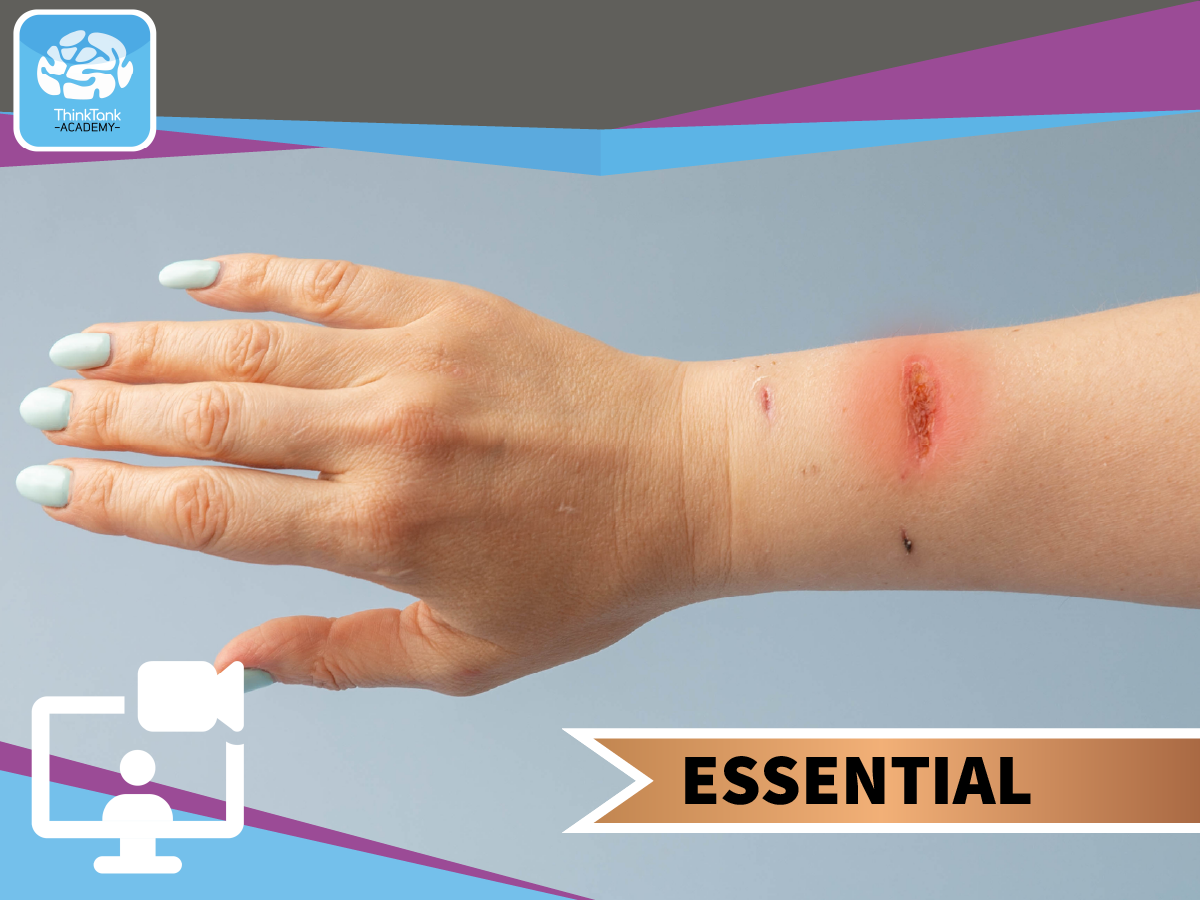

Self-Harm Awareness - Children's Care - Essential Level
Course Overview Self-Harm Awareness - Children's Care - Essential Level training course outlines the basic understanding of self-harm and suicide. It explores ways to prevent and reduce harm caused by children and young people within the work environment. Included are different strategies and techniques to be referred and incorporated into practice. Learners will be able to identify common signs and symptoms of an individual who self-harms as well as be able to relate to the likelihood of individuals to attempt suicide. It has been designed to develop tools and techniques to be used to respond to self-harm and suicide ideation. This course can be delivered in face-to-face classroom environment or a virtual classroom via a webinar: on PC, laptop etc. For mobile phones it is recommended to use the app for IOS or Android devices. Aims & Objectives Give an understanding of self-harm and suicide Understand the associated risk factors Explore harm minimisation and prevention Increase our confidence Provide tools and techniques to respond to suicide ideation and self-harm Resources & Links Course Audience This course is designed for people who work in the social care sector with children and young people who may be at risk of self-harm or suicide.



Exploitation Awareness - Children's Care - Essential Level
Course Overview Exploitation Awareness - Children's Care - Essential Level training course is designed to highlight the fact that Child Exploitation refers to a child or young person being used for someone else’s gain and that Child exploitation is a form of abuse which can involve sexual, abusive or manipulative behaviour. This course supports practitioners to recognise the indicators and respond appropriately to individuals that are being Exploited. It includes the ‘grooming process’ and how perpetrators manipulate young people into inappropriate relationships and risky behaviours It incorporates the relevant legislation around Exploitation and provides advice on how to support children and young people who have suffered this type of abuse and some excellent resources around Exploitation and who we can signpost to. This course can be delivered in face-to-face classroom environment or a virtual classroom via a webinar: on PC, laptop etc. For mobile phones it is recommended to use the app for IOS or Android devices. Aims and Objectives Give an understanding of the scale of the issue CSE and CCE Include a background of exploitation Recognise the stages of grooming Identify the signs of CSE and CCE Recognise the lessons learned from the Rotherham Raise awareness of County lines Push/ Pull Factors Protocols Resources & Links Course Audience All practitioners that engage with Children and Young People in the workplace (sports, education, health and social care, criminal justice, hospitality, retail, Guides/ Scouts, Volunteers etc).



Child Sexual Exploitation - Children's Care - Essential Level
Course Overview This is a training session for people working with Children and Young People who are victims of Sexual Exploitation. This course aims to raise awareness of the differences between Child Sexual Exploitation and other forms of abuse. It will provide learners with an understanding and awareness of the impact and prevalence of sexual exploitation and how victims are identified and targeted. It will outline the stages of grooming and will discuss the lessons learned from the Serious Case Reviews. The course features a range of group work, activities and discussions to enhance learner skill development. This course offers a blended learning approach including a short scenario, a workbook and infographics to enhance the learning experience. This course can be delivered in face-to-face classroom environment or a virtual classroom via a webinar: on PC, laptop etc. For mobile phones it is recommended to use the app for IOS or Android devices. Aims & Objectives Help the learner to differentiate between Sexual Exploitation and other forms of abuse To form an understanding of the scale and prevalence of Sexual Exploitation within society To identify the stages of Grooming To demonstrate an understanding of best practice Course Audience Health Care Workers, Social Care Workers, Children’s Centre Practitioners, Youth Workers, Education Workers and Police/ Probation staff




Recording and Reporting - Children's Care - Essential Level
Course Overview This course is designed to improve recording and reporting practices in children's health and social care sector. All major high profile serious case reviews have found that recording mistakes were present. The course identifies correct practice and processes for the handling, storing and processing of data including the GDPR legislation and what must be recorded and how by distinguishing the differences between fact, opinion and judgement for professional documentation. It also provides guidance for effective and sufficient reporting of incidents within a care setting. The positive aspects of recording such as Life story Work which is imperative for identity purposes of the Children and Young People that we work with are included. This course can be delivered in face-to-face classroom environment or a virtual classroom via a webinar: on PC, laptop etc. For mobile phones it is recommended to use the app for IOS or Android devices. Aims & Objectives Describe why reports have to be written Explain the meaning of ‘ethical writing’ Identify what to include in reports Recognise the difference between fact, opinion, judgement and hearsay Display documentation Course Audience This course is designed for Practitioners working with Families or Children and Young People.